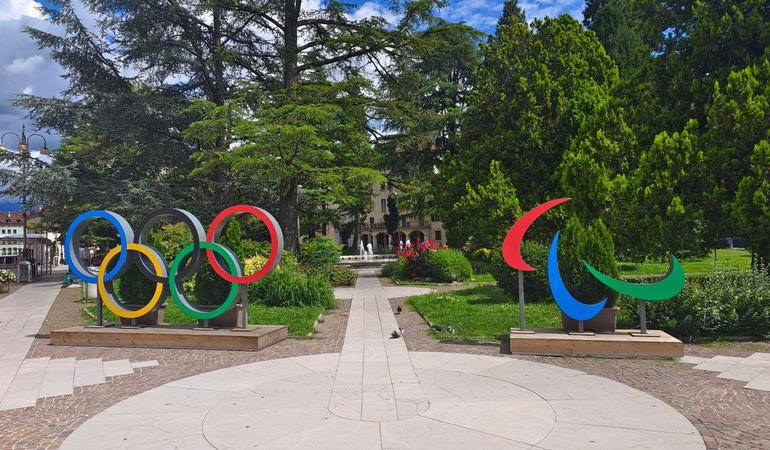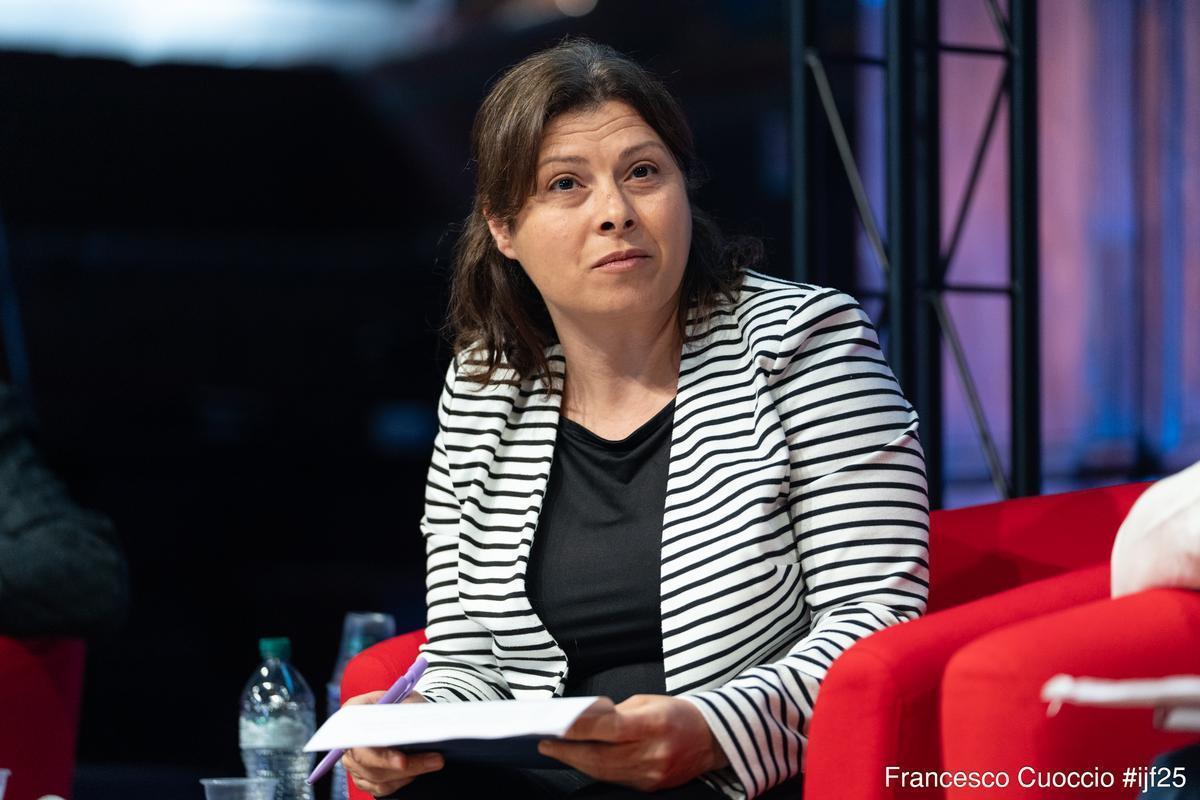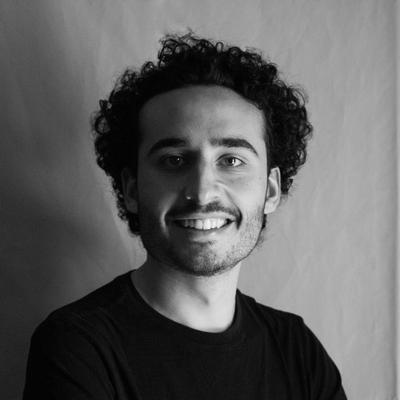
Milano-Cortina. Ecco come verranno spesi i 450 milioni di euro delle paralimpiadi



26 agosto 2025
Three digits, the ones that make up the area code common to Israelis and Palestinians. Founded in 2010 by a collective of journalists of both nationalities, the online publication +972 Magazine has established itself in recent years, and particularly since 7 October, as a rare source of independent information on what is happening in Gaza, the West Bank and Israel. Some investigations, such as the one on the Israeli army's use of artificial intelligence systems to select bombing targets, have received international attention and two contributors, Basel Adra and Yuval Abraham, received an Oscar for the documentary No Other Land on the expulsions of Palestinians in Masafer Yatta. Today, the audience continues to grow, but the work of journalists is becoming increasingly difficult, as director Ghousoon Bisharat tells lavialibera.
The Oscar is not enough, No Other Land is Nobel-worthy
"It's good to ask for foreign journalists to enter Gaza, but to convey the idea that otherwise there's no one to report what's happening means dehumanizing the Palestinians."
It means being a voice of dissent and facing the consequences of this choice. The biggest difficulties are obviously being faced by our collaborators in Gaza. We had five, but in April two left the Strip when it was still possible to do so. Of the three who remain, one wrote a few days ago that she is going hungry and cannot concentrate as usual. She has two children that she has to think about feeding and keeping healthy every day. If I were in her place, I don't think I would be able to continue writing as she is doing, without food, under the bombs and with enormous communication problems. That is why I agree with those who call for the entry of foreign journalists, but to pass off the idea that otherwise there is no one to report on what is happening is another way of dehumanising the Palestinians. The journalists in Gaza are there, and they are doing an incredible job in atrocious conditions.
It is difficult to talk about risks and dangers when you have colleagues in Gaza, because nothing comes close to what they are facing. But even outside, there is no shortage of obstacles: in the West Bank, our journalists are finding it increasingly difficult to move around the checkpoints and there are more and more attacks from settlers and the army. In Israel, on the other hand, the biggest challenge is self-censorship: the climate is so violently pro-war and hostile to the Palestinians that going against the tide becomes a risk. In parallel, there is outright censorship: Israel is the only state that claims to be democratic and stipulates by law that all articles concerning the army and security must pass the scrutiny of a military body, which often orders them to be removed or rewritten. We too are forced to play by the rules and negotiate, even if we would prefer not to.
Gaza, Israeli academic Nurit Peled-Elhanan: 'I am threatened because I am against the war'
As the proposal is written at the moment, no, because it talks about funding from foreign governments, and we do not receive any. But it cannot be ruled out that they might decide to broaden the field to include private donations or introduce restrictions for anyone working against the interests of the state, or other similar formulas. Then it would become a problem.
Yes. Fortunately, or unfortunately because it is a consequence of the genocide that continues, we reach more and more people around the world, who find from us the information that is lacking elsewhere. We have grown tenfold since 7 October, and today we have an average of 120,000 readers per month. In the last year there were 1.6 million for 3.6 million views.
Ours is a unique model: we are the only English-language bi-national media that publishes investigations, reports, analysis, and opinions on Israel and Palestine written mostly by journalists who live here. We believe in independent, accurate, and honest journalism that offers insight into what is happening in this land by bringing perspectives that are often overlooked, ignored or marginalised in the mainstream narrative and by connecting the dots.
For us, reporting from here means focusing on the asymmetries and abuses of power of a regime based on occupation, apartheid and the erasure of the Palestinian population and showing them in their different forms. We cover Gaza, and not just since 7 October, but also the West Bank, where a de facto annexation is taking place, and Israel, giving a voice to protesters and conscientious objectors who oppose genocide, and recounting the discrimination against Palestinians with Israeli citizenship, who are often forgotten. It is violence with varying degrees of brutality, but all important and part of the same design.
"Along with very few others, we are dissenting voices. In Israel, the vast majority of the media contributes to the genocide by legitimizing government policies."
Together with Local call (the 'sister' newspaper in Hebrew, ed.) and very few others like Haaretz, we are voices out of the chorus. The vast majority of the media contributes to the genocide by supporting the continuation of the war and legitimising Israel's policies. Some journalists openly speak of the opening of humanitarian channels in the Strip as a defeat and say that the starvation is Hamas propaganda.
Often the international media simply collect testimonies that are then included in articles written by others in Jerusalem, Tel Aviv, London or New York. We, on the other hand, publish what our journalists send us without any filter other than the normal editing and fact-checking. They are living that story, they are telling it.
La tua donazione ci servirà a mantenere il sito accessibile a tutti
La tua donazione ci servirà a mantenere il sito accessibile a tutti